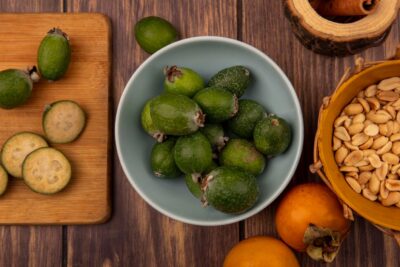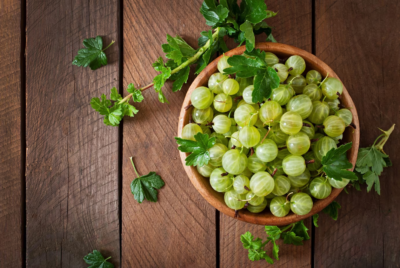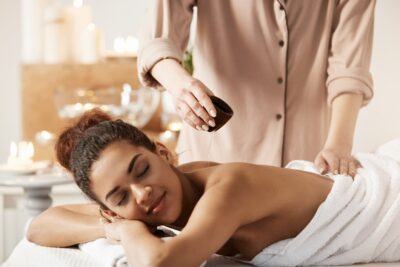100% Herbal & Natural |
Extra 10% OFF with code SATRISHI10 |
Backed by Ayurveda |
Free Shipping Above ₹399 |
100% Herbal & Natural |
Extra 10% OFF with code SATRISHI10 |
Backed by Ayurveda |
Free Shipping Above ₹399 |
100% Herbal & Natural |
Extra 10% OFF with code SATRISHI10 |
Backed by Ayurveda |
Free Shipping Above ₹399 |
100% Herbal & Natural |
Extra 10% OFF with code SATRISHI10 |
Backed by Ayurveda |
Free Shipping Above ₹399 |

Ayurveda, the ancient Indian system of holistic healing, offers timeless beauty secrets that promote radiant skin and healthy hair. Unlike modern beauty products, which often provide temporary solutions, Ayurveda focuses on nourishing the body from the inside out, addressing the root causes of skin and hair issues. Ayurvedic beauty routines involve the use of natural herbs, oils, and lifestyle practices to achieve long-lasting results. By balancing the doshas—Vata, Pitta, and Kapha—you can unlock the secrets to naturally glowing skin and luscious hair.
According to Ayurveda, beauty is a reflection of overall health and wellness. It emphasizes that true beauty comes from balancing the doshas and living in harmony with nature. The skin and hair reflect the state of internal balance, and imbalances in the body often manifest as skin problems, dullness, or hair loss.
Vata skin is usually dry and prone to premature aging, while Vata hair tends to be thin, brittle, and prone to frizziness. To enhance beauty for Vata types, it’s essential to focus on deep hydration and nourishment.
Pitta skin is sensitive and prone to inflammation, redness, and acne. Pitta hair may be fine and prone to early graying or thinning. For Pitta beauty, the goal is to soothe the skin, reduce inflammation, and cool down excess heat.
Kapha skin is typically oily and prone to congestion, while Kapha hair is thick and greasy. For Kapha beauty, it’s important to focus on regular cleansing and detoxification to prevent clogged pores and greasy hair.

Glowing, healthy skin is a hallmark of beauty in Ayurveda. The key to radiant skin is balancing the doshas, nourishing the skin, and supporting the body’s natural detoxification processes.
Turmeric (Curcuma longa) is one of the most revered Ayurvedic herbs for glowing skin. It has anti-inflammatory and antioxidant properties that help brighten the complexion and reduce blemishes.
Sandalwood (Santalum album) is known for its cooling and soothing properties, making it an excellent remedy for sensitive and acne-prone skin. It calms inflammation and balances Pitta dosha.
Aloe vera is widely used in Ayurveda for its cooling, hydrating, and healing properties. It helps soothe irritated skin, reduce inflammation, and lock in moisture.
Honey is a natural humectant, which means it draws moisture into the skin. It’s also antibacterial and helps in cleansing the pores, making it ideal for dry and combination skin.
Neem (Azadirachta indica) is a powerful antibacterial herb that helps clear up acne and other skin infections. It purifies the blood and detoxifies the skin from within.
Triphala, a combination of three fruits—Amalaki, Bibhitaki, and Haritaki—is a potent Ayurvedic formula for detoxifying the body. Clear skin starts with a clean digestive system, and Triphala helps cleanse the gut, promoting radiant skin.
Rose water is a gentle and natural toner that balances the skin’s pH and hydrates it. It’s especially beneficial for sensitive and Pitta skin.

Healthy, lustrous hair is a sign of balanced doshas and good health. Ayurvedic remedies for hair focus on nourishing the scalp, improving circulation, and using herbal oils to prevent hair fall, dandruff, and premature graying.
Bhringraj (Eclipta prostrata) is known as the “king of herbs” for hair care in Ayurveda. It helps strengthen hair, prevent hair fall, and promote regrowth.
Amla (Emblica officinalis), or Indian gooseberry, is a rich source of vitamin C and antioxidants that strengthen the hair follicles and promote hair growth. It also helps prevent premature graying.
Coconut oil is deeply nourishing and hydrating for the hair. It penetrates the hair shaft, preventing breakage and improving hair texture.
Fenugreek seeds (Trigonella foenum-graecum) are rich in protein and nicotinic acid, which strengthen the hair shaft, reduce dandruff, and soften the hair.
Hibiscus flowers are packed with amino acids that nourish the hair, boost shine, and promote hair growth. They also help prevent split ends.
Shikakai (Acacia concinna) is a natural Ayurvedic herb used as a gentle hair cleanser. It doesn’t strip the hair of its natural oils, making it perfect for maintaining healthy scalp and hair.
Ashwagandha (Withania somnifera) is an adaptogenic herb that helps reduce stress, one of the main causes of hair fall. By calming the nervous system, it promotes hair growth and prevents hair loss.

In addition to using herbal remedies, Ayurveda emphasizes the importance of lifestyle practices to support beauty from within.
Abhyanga, or self-massage with warm oil, is a deeply nourishing Ayurvedic practice that helps improve circulation, reduce stress, and keep the skin and hair healthy.
In Ayurveda, beauty starts from within. Drinking plenty of water and eating a dosha-balancing diet rich in fruits, vegetables, and healthy fats is crucial for maintaining radiant skin and healthy hair.
Stress can lead to skin breakouts, hair fall, and premature aging. Practices like meditation, pranayama (breathing exercises), and yoga help calm the mind and reduce stress, leading to improved skin and hair health.
Ayurveda offers a holistic approach to beauty, focusing on natural remedies and lifestyle practices that nourish the body from within. By incorporating Ayurvedic herbs, oils, and treatments into your daily routine, you can achieve glowing skin and healthy hair while maintaining overall well-being. Balancing the doshas, detoxifying the body, and practicing self-care are the keys to unlocking these ancient beauty secrets.
No account yet?
Create an Account